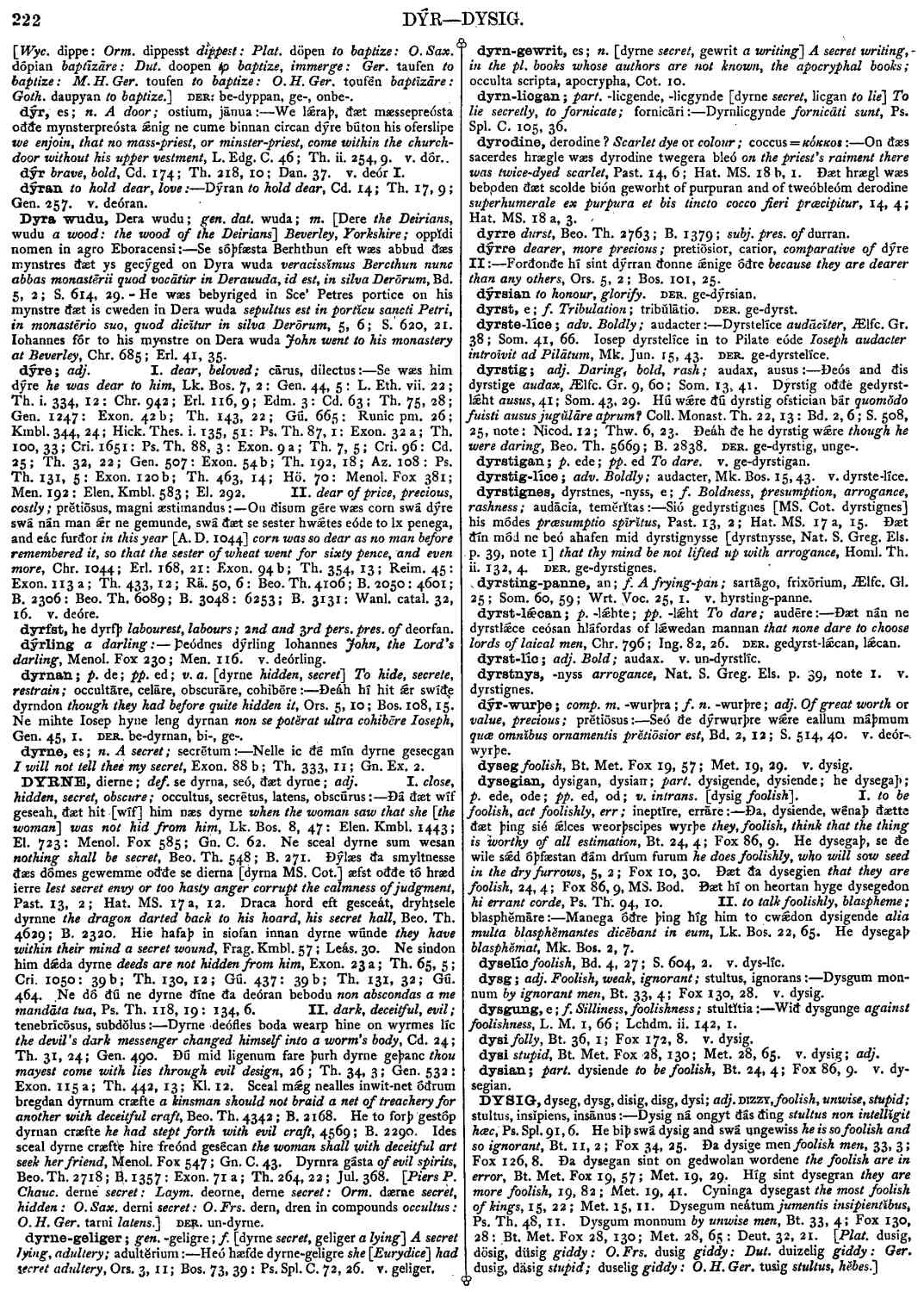DYSIG
- adjective
-
Dysig ná ongyt ðás ðing
stultus non intellĭgit hæc,
- Ps. Sp1. 91, 6.
-
He biþ swá dysig and swá ungewiss
he is so foolish and so ignorant,
- Bt. 11, 2;
- Fox 34, 25.
-
Ða dysige men
foolish men,
- 33, 3;
- Fox 126, 8.
-
Ða dysegan sint on gedwolan wordene
the foolish are in error,
- Bt. Met. Fox 19, 57;
- Met. 19, 29.
-
Híg sint dysegran
they are more foolish,
- 19, 82;
- Met. 19, 41.
-
Cyninga dysegast
the most foolish of kings,
- 15, 22 ;
- Met. 15, 11.
-
Dysegum neátum
jumentis insipientĭbus,
- Ps. Th. 48, 11.
-
Dysgum monnum
by unwise men, Bt. 33, 4; Fox 130, 28: Bt. Met. Fox 28, 130; Met. 28, 65: Deut. 32, 21. [Plat. dusig, dösig, düsig giddy: O. Frs. dusig giddy: Dut. duizelig giddy: Ger. dusig, däsig stupid; duselig giddy: O. H. Ger. tusig stultus, hĕbes . ]
Bosworth, Joseph. “DYSIG.” In An Anglo-Saxon Dictionary Online, edited by Thomas Northcote Toller, Christ Sean, and Ondřej Tichy. Prague: Faculty of Arts, Charles University, 2014. https://bosworthtoller.com/8252.
Checked: 1